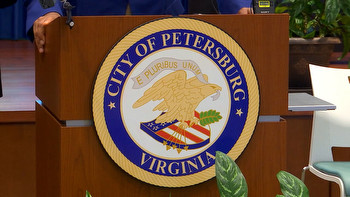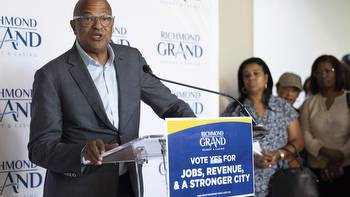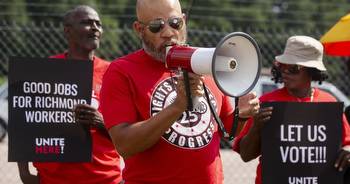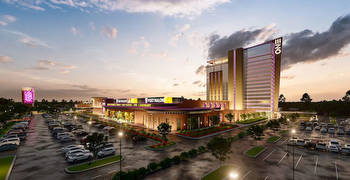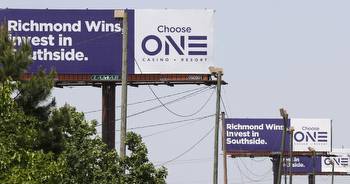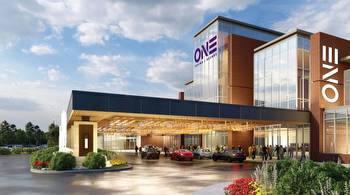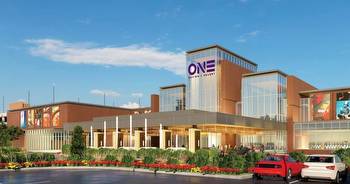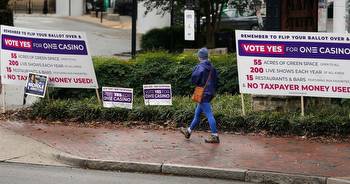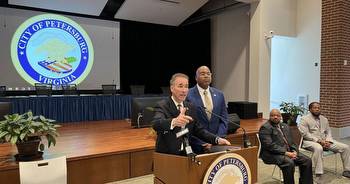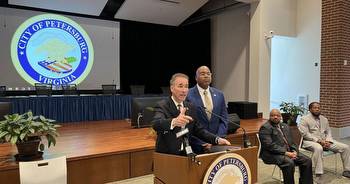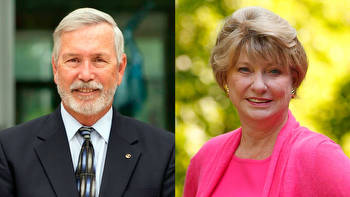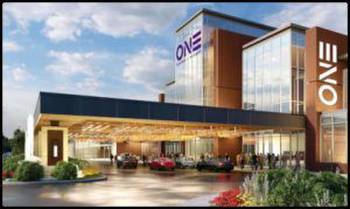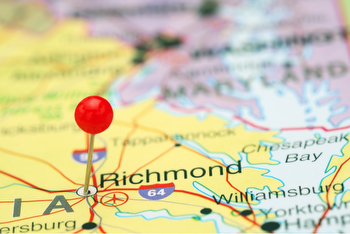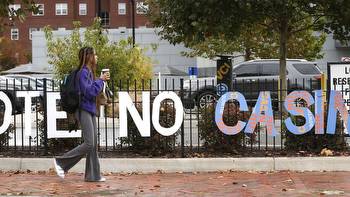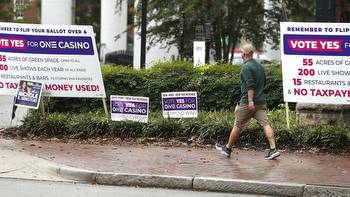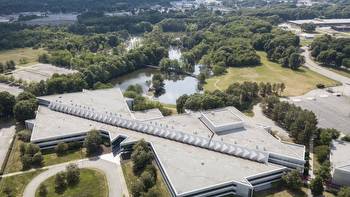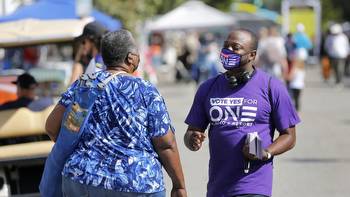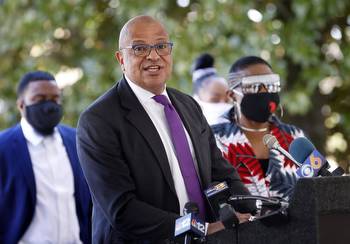Sen. Morrissey, local officials angle for Petersburg casino bid after failed referendum in Richmond
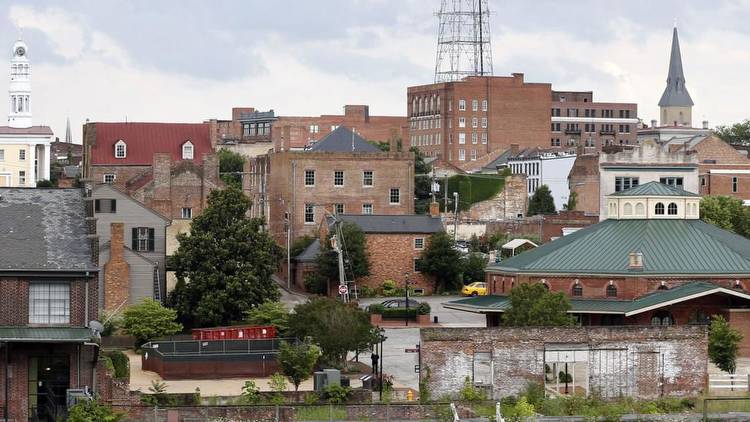
New casino development plans could soon be coming to Petersburg after Richmond voters rejected the $565 million One Casino and Resort in last week’s general election.
State Sen. Joe Morrissey, D-Richmond, said in an interview Thursday that he has initiated paperwork to begin drafting legislation that would allow Petersburg to hold its own referendum on whether to permit a casino. Petersburg officials, meanwhile, say they have met with representatives of the rejected casino project to pitch alternate development sites about 20 minutes south of where it had originally been proposed.
Supporters of the One Casino and Resort promoted it as a major economic development opportunity for Richmond, particularly the impoverished and under-resourced South Side, estimating that it would yield $50 million in annual tax revenue for the city and 1,500 jobs permanent jobs. After the project fell short by less than 2,000 votes, some are hoping that it can be transplanted to uplift another economically depressed community.
“Petersburg is the best location ... now that Richmond has declined,” said Morrissey, whose Senate district includes the city of approximately 33,000 residents, where 1 in 4 live in poverty and the median household income is $38,000. “My philosophy in life is find the silver lining in any adversity you find. Losing the referendum in Richmond was a tragedy. But the silver lining may be relocating that casino to Petersburg.”
Television station WTVR first reported news about the draft legislation and Petersburg officials meeting with representatives of the One Casino and Resort project.
Petersburg Mayor Samuel Parham said Thursday that representatives from several companies, including the One Casino and Resort, have approached city officials about building a casino there.
Parham said he thinks that a casino resort development could be a “game changer” for the city, and that the tax revenue it would generate could fund road improvements; raises for teachers, police officers and firefighters; and the building of a new school for the first time since the 1970s.
He said he also hopes that it leads to a reduction in the city’s real estate tax rate of $1.35 per $100 of assessed value, which is 15 cents higher than Richmond’s rate.
“We’ve got the second-highest tax rate in Virginia. We had to jack it up years ago to cover loss of revenue from manufacturing jobs that we lost in the ’80s and ’90s,” Parham said. “This would help improve our community overall. We’ve been scratching and clawing our way out of a financial abyss over the last five years.”
A spokesman for the One Casino and Resort project declined to comment Thursday. Parham also declined to specify what other companies have approached Petersburg officials.
The state’s casino gambling law legislation specifically targeted the Richmond area for one of five casino licenses.
Virginia lawmakers must amend the state casino bill to let Petersburg hold the referendum. The change would also be subject to approval by Gov.-elect Glenn Youngkin.
It’s unclear whether the legislation would be adopted by a Republican-controlled House of Delegates after the chamber passed it on a 59-34 bipartisan vote last year, with 20 House Republicans in favor the Senate bill introduced by Sen. Louise Lucas, D-Portsmouth. Morrissey said he is not concerned about new legislation passing despite the change in power, as the state Senate is closely divided but still under Democratic control.
“I think that close numbers in a legislative body are good. It forces people to come together and compromise,” he said. “There’s going to be no effort to roll back the number of casinos — it’ll stay at five. I’ll insist that one of them still comes to central Virginia.”
Petersburg is emerging as the apparent frontrunner to open a fifth casino after an overwhelming majority of voters in Norfolk, Portsmouth, Danville and Bristol approved casino development plans last year.
Richmond city officials evaluated six casino development proposals before selecting the One Casino and Resort plan from Silver Spring-based media conglomerate Urban One and Peninsula Pacific Entertainment, the Los Angeles-based company that owns and operates Colonial Downs and Rosie’s gaming emporiums across the state.
Even before 51% of Richmond voters rejected the casino project last week, Urban One CEO Alfred Liggins said that a casino could rise in one of the Richmond area’s suburban counties if his project didn’t pass the city referendum.
Officials in Chesterfield and Henrico counties have thrown cold water on that idea — at least for now.
“Our [Board of Supervisors] and School Board have been working on a referendum that would be on the ballot in November 2022 that would largely fund schools within our existing revenues,” said Henrico County Manager John Vithoulkas. “I cannot envision a scenario where our board would place a casino on that same ballot.”
Henrico Supervisor Tyrone Nelson, who represents the Varina district in the eastern part of the county, said he has been approached by casino operators since the city referendum last week. He declined to say who, but said he has not given the idea of a casino in Henrico much thought.
A spokesperson for Chesterfield, which is also preparing for a bond referendum next year, said there are no casino proposals it is considering, and that it would be “irresponsible” to speculate or comment further on the idea.
Morrissey said other localities in the Richmond and Tri-cities areas could also serve as alternate locations for a casino, but that Petersburg is ideal because Interstate 95 courses through it, making it easy for tourists from outside the region and Virginia to visit and spend their money in the city.
While representatives for One Casino and Resort project recently met with Petersburg officials, according to Parham, the mayor said city officials have not yet decided whether to partner with them or follow a competitive selection process.
Urban One and Peninsula Pacific spent more than $2 million campaigning for its casino plan in Richmond.
Most voters in South Richmond supported the project, saying it would benefit the majority Black and Hispanic communities there, but most precincts elsewhere in the city were divided or voted overwhelmingly against it.
Predominantly white neighborhoods in the city’s west end and Forest Hill Avenue corridor, where other casino developments had been proposed and considered, were the most staunchly opposed to the Urban One casino project in last week’s vote.
“I am mystified that it didn’t pass,” Morrissey said. “The western part of the city and North Side, many residents there have never come to South Richmond. ... But their vote defeated an economic opportunity for it.”
Progressive activists, including the social justice group Richmond for All, campaigned against the Richmond casino project, citing concerns about problem gambling and the adverse impact it could have on poor residents.
“Like a payday lending business, corporate gambling is a predatory policy decision, wherever it’s placed,” said Quinton Robbins, Richmond for All’s director of operations. “It’s telling that casino operators continue to target low-income communities. For our siblings in Petersburg, we are only a phone call away.”
Richmond for All’s political action committee raised $13,400 from July 1 to Sept. 30, but has not submitted any additional campaign finance reports to state election officials since mid-October. Another anti-casino campaign committee directed by longtime Democratic strategist Paul Goldman raised approximately $200,000 opposing the project, according to state campaign finance records.
Goldman’s own company, GoldmanMedia, put up half of the funding through a mix of in-kind donations and loans. Richmond businessman Jim Ukrop and The Family Foundation, a conservative social action group, through its own anti-casino campaign committee, each contributed about $55,000.
Goldman in an interview Thursday declined to say explicitly whether he is opposed to a casino in Petersburg.
“I don’t have any thoughts about it,” he said. “I’m not the moral vicar of the state.”








